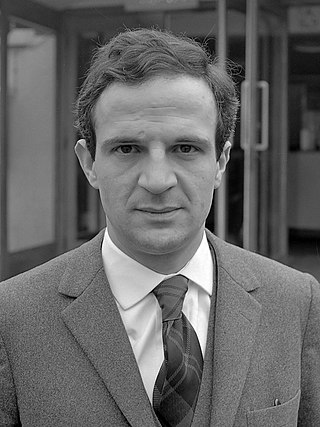
François Roland Truffaut was a French filmmaker, actor, and critic, widely regarded as one of the founders of the cinematic French New Wave. With a career of more than 25 years, he is an icon of the French film industry.
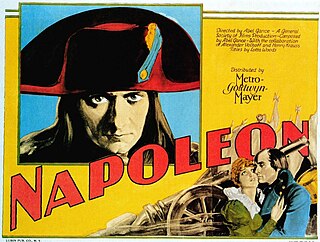
Napoléon is a 1927 French silent epic historical film, produced, and directed by Abel Gance that tells the story of Napoleon's early years. It is also the only film to use Polyvision. On screen, the title is Napoléon vu par Abel Gance, meaning "Napoleon as seen by Abel Gance". The film is recognised as a masterwork of fluid camera motion, produced in a time when most camera shots were static. Many innovative techniques were used to make the film, including fast cutting, extensive close-ups, a wide variety of hand-held camera shots, location shooting, point of view shots, multiple-camera setups, multiple exposure, superimposition, underwater camera, kaleidoscopic images, film tinting, split screen and mosaic shots, multi-screen projection, and other visual effects. A revival of Napoléon in the mid-1950s influenced the filmmakers of the French New Wave. The film used the Keller-Dorian cinematography for its color sequences.

Abel Gance was a French film director, producer, writer and actor. A pioneer in the theory and practice of montage, he is best known for three major silent films: J'accuse (1919), La Roue (1923), and Napoléon (1927).
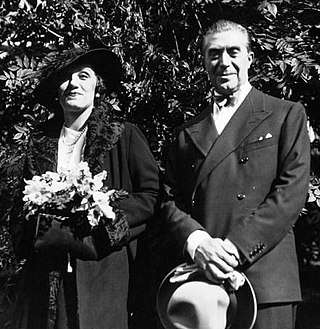
Victor Francen was a Belgian-born actor with a long career in French cinema and in Hollywood.

Elvìra Popèscu was a Romanian-French stage and film actress and theatre director. During the 1930s and 1940s, she starred in a number of French comedy films.

J'accuse is a 1919 French silent film directed by Abel Gance. It juxtaposes a romantic drama with the background of the horrors of World War I, and it is sometimes described as a pacifist or anti-war film. Work on the film began in 1918, and some scenes were filmed on real battlefields. The film's powerful depiction of wartime suffering, particularly its climactic sequence of the "return of the dead", made it an international success and confirmed Gance as one of the most important directors in Europe.

Le Giornate del cinema muto is an annual festival of silent film held in October in Pordenone, northern Italy. It is the first, largest and most important international festival dedicated to silent film and also is present in the list of the top 50 unmissable film festivals in the world according to Variety. The Pordenone Silent Film Festival is a non-profit association, whose president is Livio Jacob. The director from 1997 until 2015 was David Robinson. In 2016, Jay Weissberg became director. Other members of the festival board are Paolo Cherchi Usai, Lorenzo Codelli, Piero Colussi, Luciano De Giusti, Carlo Montanaro, Piera Patat.

"J'Accuse...!" is an open letter, written by Émile Zola in response to the events of the Dreyfus affair, that was published on 13 January 1898 in the newspaper L'Aurore. Zola addressed the President of France, Félix Faure, and accused his government of antisemitism and the unlawful jailing of Alfred Dreyfus, a French Army General Staff officer who was sentenced to lifelong penal servitude for espionage. Zola pointed out judicial errors and lack of serious evidence. The letter was printed on the front page of the newspaper, and caused a stir in France and abroad. Zola was prosecuted for libel and found guilty on 23 February 1898. To avoid imprisonment, he fled to England, returning home in June 1899.
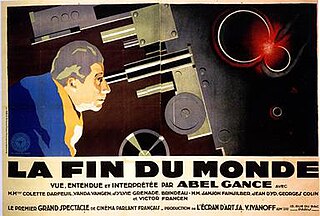
End of the World is a 1931 French science fiction film directed by Abel Gance based on the novel Omega: The Last Days of the World by Camille Flammarion. The film stars Victor Francen as Martial Novalic, Colette Darfeuil as Genevieve de Murcie, Abel Gance as Jean Novalic, and Jeanne Brindau as Madame Novalic.
Gaston Modot was a French actor. For more than 50 years he performed for the cinema working with a number of great French directors.
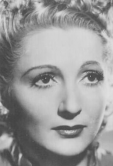
Annie Ducaux was a French actress, who appeared in 40 film and television productions between 1932 and 1980. Ducaux was a shareholder in the state theater Comédie-Française from 1948, and played in numerous stage productions there. She is possibly best-remembered for her roles in such films as Abel Gance's Beethoven's Great Love (1937), Conflict and Les grandes familles.
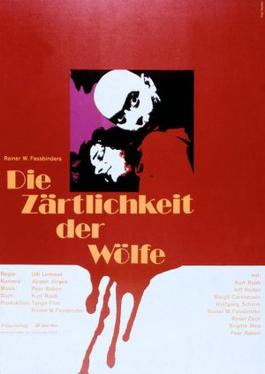
The Tenderness of Wolves is a 1973 West German crime drama film directed by Ulli Lommel. The story is based on the crimes of German serial killer and cannibal Fritz Haarmann. It was written by Kurt Raab, who also stars in the film, and produced by Rainer Werner Fassbinder. It was entered into the 23rd Berlin International Film Festival.
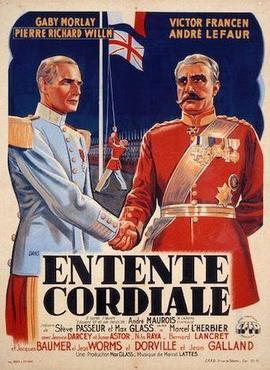
Entente cordiale is a 1939 French drama film directed by Marcel L'Herbier and starring Gaby Morlay, Victor Francen and Pierre Richard-Willm. The film depicts events between the Fashoda crisis in 1898 and the 1904 signing of the Entente Cordiale creating an alliance between Britain and France and ending their historic rivalry. It was based on the book King Edward VII and His Times by André Maurois. It was made with an eye to its propaganda value, following the Munich Agreement of September 1938 and in anticipation of the outbreak of a Second World War which would test the bonds between Britain and France in a conflict with Nazi Germany.
Georges Douking was a French stage, film, and television actor. He also directed stage plays such as the premier presentation of Jean Giraudoux's Sodom and Gomorrah at the Théâtre Hébertot in 1943. He is perhaps best known for his role in the surreal 1972 comedy The Discreet Charm of the Bourgeoisie. He was one of the favorite actors of the French filmmaker Pierre Chenal.
Walter Percy Day O.B.E. (1878–1965) was a British painter best remembered for his work as a matte artist and special effects technician in the film industry. Professional names include W. Percy Day; Percy Day; "Pop" or "Poppa" Day, owing to his collaboration with sons Arthur George Day (1909–1952) draughtsman, Thomas Sydney Day (1912–1985), stills photographer and cameraman, and stepson, Peter Ellenshaw, who also worked in this field.

Romuald Charles Eugène Gaudens Jean Sylve Joubé was a French stage and film actor whose career on the stage and in films lasted approximately thirty years.
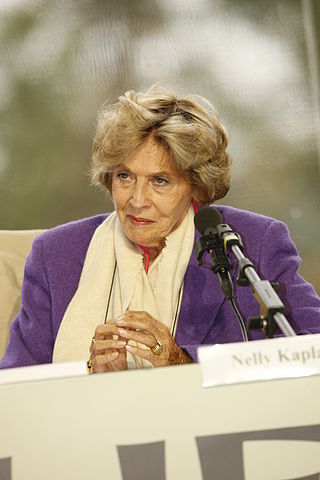
Nelly Kaplan was an Argentine-born French writer and film director who focused on the arts, film, and filmmakers. She studied economics at the University of Buenos Aires. Passionate about cinema, she abruptly put her studies on hold to go to Paris to represent the new Argentine film archive at an international convention and later became a correspondent for different Argentine newspapers. She met Abel Gance in 1954, who gave her the opportunity to work on the film La tour de Nesle.
Daniel Mendaille was a French stage and film actor whose career spanned nearly sixty years.

Gueules cassées is a French expression for facially disfigured servicemen that originated in World War I. Colonel Yves Picot is said to have coined the term when he was refused entry to a gathering for those disabled from the war.

A Skin So Soft is a 2017 documentary film, directed by Canadian director Denis Côté. A Canadian, French and Swiss coproduction, the film chronicles the daily monotonous routines of a select few men whose lives revolve around extreme bodybuilding.

















